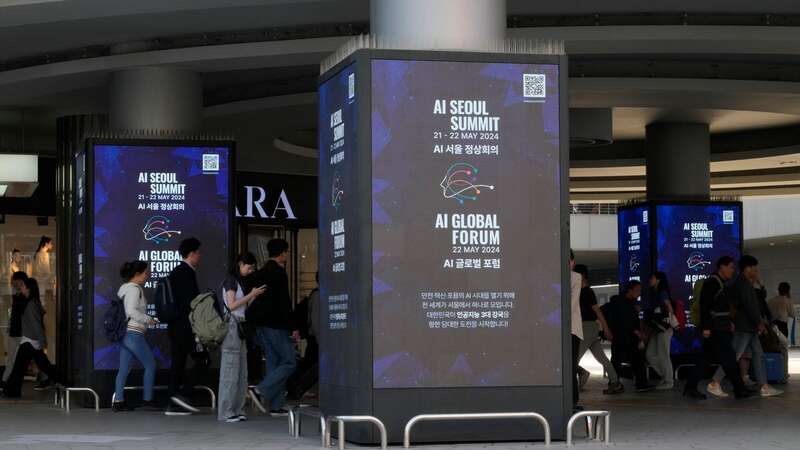
South Korea is set to host a mini-summit this week on risks and regulation of artificial intelligence, following up on an inaugural AI safety meeting in Britain last year that drew a diverse crowd of tech luminaries, researchers and officials.
The gathering in Seoul aims to build on work started at the UK meeting on reining in threats posed by cutting edge artificial intelligence systems. At the UK summit in November, hosted at Bletchley, participants included researchers, government figures, tech industry leaders, and civil society representatives, many with differing stances on AI engaged in discussions.
Attendees such as Tesla's Elon Musk and OpenAI's Sam Altman held talks with political figures like British Prime Minister Rishi Sunak. In March, the UN General Assembly gave its first resolution on artificial intelligence, backing an international effort to ensure that this powerful new technology benefits all nations, respects human rights and is "safe, secure and trustworthy."
Earlier this month, the U.S. and China held their first high-level talks on artificial intelligence in Geneva to discuss how to address the risks of the fast-evolving technology and set shared standards to manage it.
The meeting on May 21-22 is a joint venture between the South Korean and UK governments. On the first day, Tuesday, South Korean President Yoon Suk Yeol and PM Rishi Sunak will meet leaders virtually. A select group of global industry leaders have been invited to share updates on how they've been honouring the commitments made at the Bletchley summit to ensure the safety of their AI models.
 Pub delivers five-word response to critics of its 'slow' carvery service
Pub delivers five-word response to critics of its 'slow' carvery service
On the second day, digital ministers will convene for a face-to-face meeting hosted by South Korea's Science Minister Lee Jong-ho and Britain's Technology Secretary Michelle Donelan. The participants will exchange best practices and solid action plans.
They will also discuss ways to shield society from potential negative impacts of AI on areas such as energy consumption, workforce, and the spread of misinformation, according to the event organisers. The gathering has been labelled as a mini virtual summit, acting as a placeholder meeting until France hosts a full-scale in-person edition.
The digital ministers' meeting is set to include representatives from the United States, China, Germany, France, and Spain, as well as companies including ChatGPT-maker OpenAI, Google, Microsoft, and Anthropic. The agreement reached at the UK meeting was vague and didn't suggest a method to regulate the development of AI.
"The United States and China attended the last summit. However, when we examine some principles announced after the meeting, they were similar to what had already been announced after some U.N. and OECD meetings," said Lee Seong-yeob, a professor at the Graduate School of Management of Technology at Seoul's Korea University. "There was nothing new."
The issue of AI safety requires a global summit, he explained, but reaching a consensus will be "considerably difficult" given each country's unique interests and stages in their domestic AI technology and industries.
The original AI Safety Summit was conceived as a venue for hashing out solutions for so-called existential risks posed by the most powerful “foundation models” that underpin general purpose AI systems like ChatGPT. Pioneering computer scientist Yoshua Bengio, dubbed one of the “ godfathers of AI,” was tapped at the U.K. meeting to lead an expert panel tasked with drafting a report on the state of AI safety.
An interim version of the report released on Friday to inform discussions in Seoul identified a range of risks posed by general purpose AI, including its malicious use to increase the “scale and sophistication” of frauds and scams, supercharge the spread of disinformation, or create new bioweapons. Malfunctioning AI systems could spread bias in areas like healthcare, job recruitment and financial lending, while the technology's potential to automate a big range of tasks also poses systemic risks to the labor market, the report said.
South Korea hopes to use the Seoul summit to take the initiative in formulating global governance and norms for AI. But some critics say the country lacks AI infrastructure advanced enough to play a leadership role in such governance issues.
Read more similar news:
Comments:
comments powered by Disqus
































